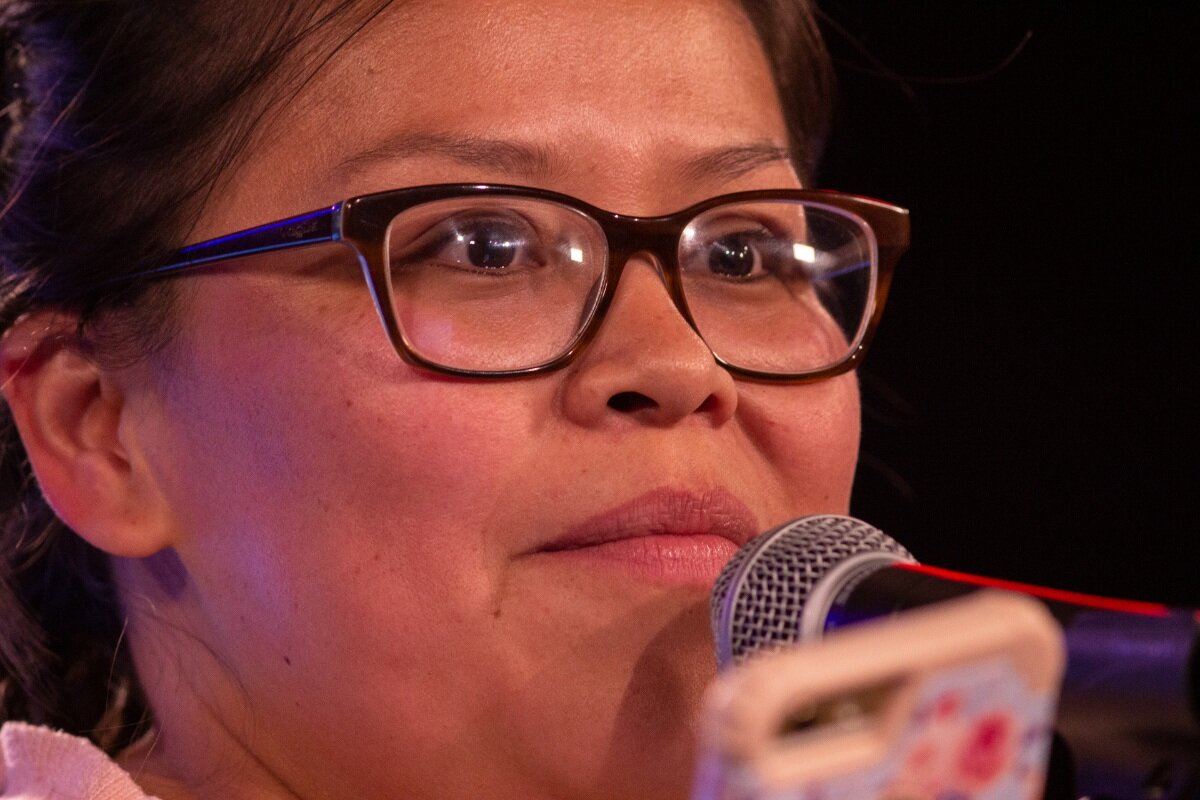How Sacred Voices grew from an impromptu show in a holding cell to an award-winning nonprofit

DENVER — Producing media events, live streams, hosting, recording, editing: Astin Lopez does it all on behalf of Sacred Voices.
As co-executive and media director for the Denver-based nonprofit, Lopez has his hands full with day-to-day administrative duties and oversight of the group’s media projects, including a radio show.
Lopez said Sacred Voices began at a Columbus Day protest in 2004. The demonstration against the parade and the arrests of protesters led to impromptu poetry slam that broke out in holding cells as people shared their poetry with each other.
After protesters were discharged, they created an ongoing monthly gathering to share work both old and new. Focusing on Indigenous identity and activism allows the community's voices to be heard, Lopez explained.
“A lot of people felt, like with the Columbus Day protests and everything, they weren't really being heard as citizens,” explained Lopez. “We have expanded our reach to try to reach more youth in the area and just to serve all."
Sacred Voices continued as a community organization until 2011, then officially became a nonprofit, blossoming into a much larger event in the Denver area. Lopez said the organization then expanded into doing workshops at local schools, focusing on teaching youth how to use their own voices to write poetry, perform, and share what they want to say to the world.
“Workshops — we've done a lot of them in schools," he said. "We would love to have more in-house workshops, be able to have something more consistent that the entire community can participate in easily instead of just the youth in local schools."
Since 2011, the program has grown even more. In 2018, Sacred Voices went through a yearlong restructure. Though they changed their leadership — and their logo — their values remained. Expansion of open mics and workshops led Sacred Voices to reach even more youth, Black, Indigenous People of Color, and queer people and LGBTQ+ communities.
“We try to prioritize those voices,” said Lopez.
On the second Friday of each month, Lopez and Sacred Voices host Sacred Voices Live, a virtual and in-person hybrid event geared toward accessibility. Lopez said it is a special experience to sit in the audience and see people perform and take part in sharing their sacred words.
Hosted and streamed live at Denver Community Media, the event began during the COVID-19 pandemic to reach people wherever they were. Though many virtual open mics were brought to Zoom, Lopez said Sacred Voices wanted to offer something with a bit more production value.
“It is a bona fide TV studio,” Lopez explained.
Sacred Voices partnered with Denver Community Media to bring poetry to as many people as possible. With the TV studio — and, more importantly, a public TV license — the partnership quickly elevated "Sacred Voices Live." The production includes a professional set and welcomes anyone to perform on stage with backdrops, lights and a microphone. Everything that is filmed is broadcast live on Facebook, where people can also watch and perform from home.
“So that has enabled us to include everyone in our community, whether they are sick or disabled or for any reason can't come to the show physically," Lopez said.
After the show is over, the recoding is available online. Everybody has access to what was recorded, which is, in turn, a great professional tool for emerging artists.
Currently, Sacred Voices is looking ahead to expand national — and even internationally.

“One of the reasons why we have been successful in what we do is our consistency,” Lopez said. “We are a voice in the community, a service that people can come to in order to further develop their voice.”
He is particularly excited to nurture the voices of youth, supporting their expansion and growth to become leaders in their own communities.
“Wherever you are, whatever your situation is, you can join us and still be able to perform and share your voice with the community,” Lopez said. "There’s a section of the community that was not being heard — and now they can.”
Bean Yazzie is a multimedia journalist with Rocky Mountain PBS and can be reached at beanyazzie@rmpbs.org.
